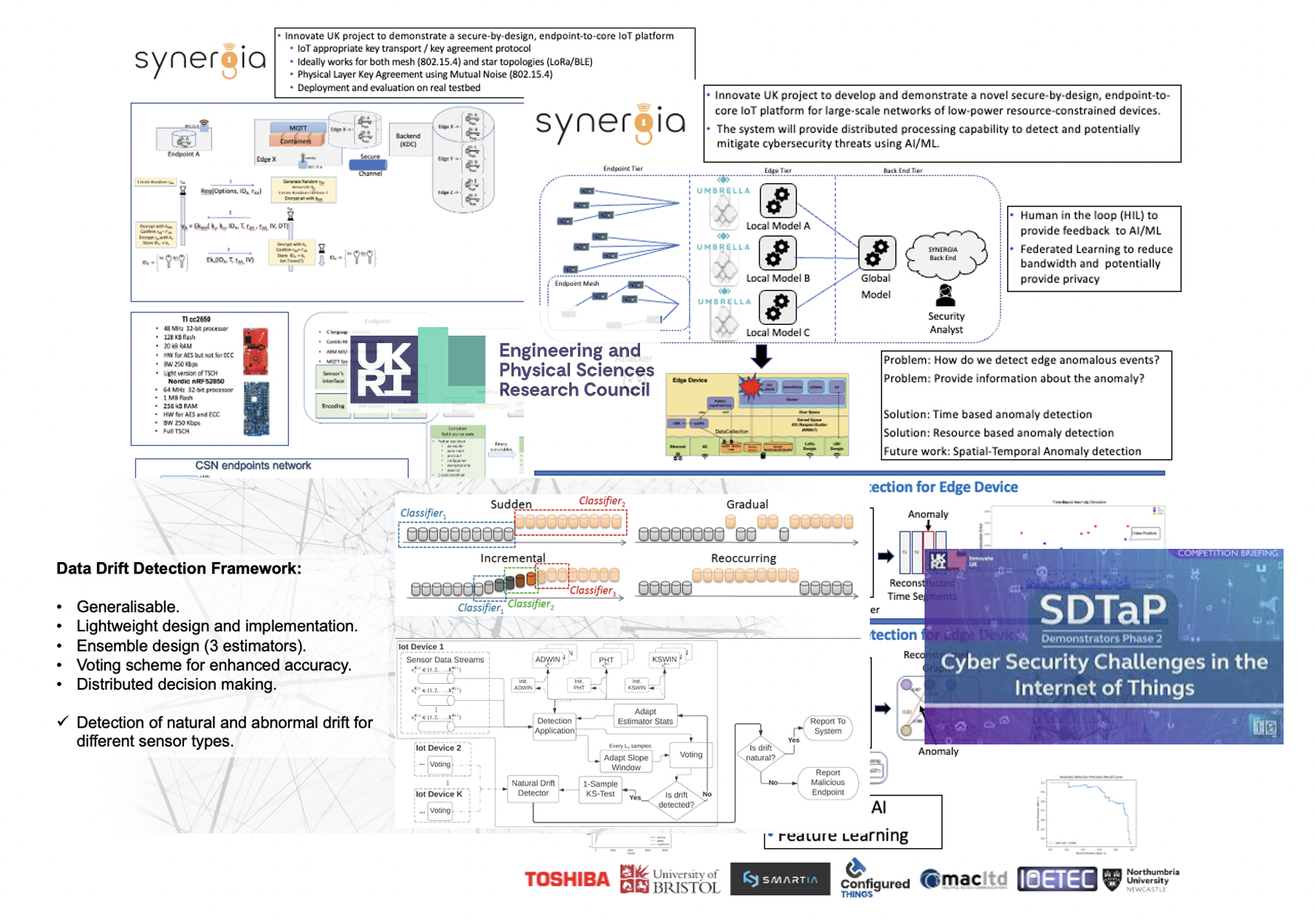SYNERGIA Industrial and Academic Engagement
By Francesco Raimondo
There’s been a lot of external interest in the SYNERGIA project in the last few months.
PETRAS, the National Centre of Excellence for IoT Cybersecurity interviewed some of the SYNERGIA team, alongside other projects in the Security of Digital Technology at the Periphery (SDTaP) programme. The interview was focused on the relationship between research and industry and discussed both challenges and opportunities. During the interview with SYNERGIA, we identified opportunities, for example, the industry-academia relationship enables academic research to have significant impact by working with industrial partners on products and services that can quickly be brought to market. On the other hand, industry can access the latest innovative approaches in research institutions to improve their products and services. The challenges arise from different attitudes to intellectual property between academia and industry, and social distancing due to Covid19, has made building close relationships more difficult in recent times.
SYNERGIA was one of the few projects to provide a progress update and recent results to an online meeting of the SDTaP’s Independent Advisory Committee (IAC). During the two-hour meeting Innovate UK also provided updates on relevant UK Government initiatives, and there was also a discussion about the future activities of SDTaP and IAC.
The SYNERGIA project was also a topic for discussion when BT communications visited the University of Bristol (UoB) at the Merchant Venture building (MVB). It was a valuable occasion for feedback from IoT and communications experts from both BT and UoB.
In April, a group from the Engineering and Physical Sciences Research Council (EPSRC) visited the SMART Internet Lab, at the MVB. SYNERGIA was featured alongside presentations on Secure Platform for Cloud-IoT Applications, AI For Future Wireless Networks, methods for improving the energy efficiency and linearity of communication transmitters and High Efficiency Broadband Power Amplifiers.
This month, the University of Bristol’s Communication Systems & Networks Group (CSN) showcase event also included presentations on SYNERGIA to researchers and PhD students working in the CSN group.
The research collaboration between SYNERGIA company partners continues, with several research publications in preparation and a series of research works. Research topics include Data Drift Detectors for Resource-Constrained IoT Devices: about our work in investigating a framework with low computational requirements for the detection of sensor’s data-drift. On a different front, the experience gained developing the SYNERGIA Machine Learning model for detection of anomalies in sensor data streams was the starting point for further developments soon to be reported in papers on human-in-the-loop intrusion Detection System using Federated Learning, and Efficient Audit Representation for Anomaly Detection using Graph Neural Networks. Watch this space!
